Tehran And Riyadh Set To Hold First Public Reconciliation Talks
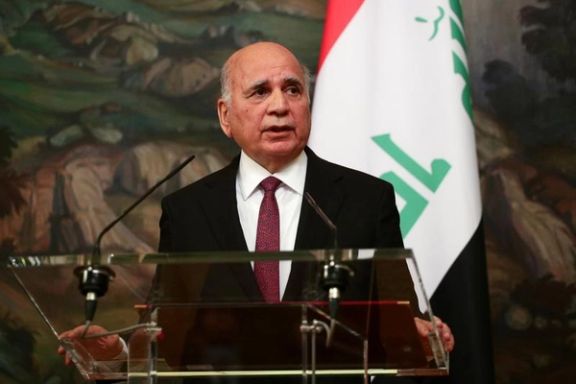
Saudi Arabia and Iran have reportedly agreed to hold the first public meeting at the level of foreign ministers in Baghdad following rounds of closed reconciliation meetings.

Saudi Arabia and Iran have reportedly agreed to hold the first public meeting at the level of foreign ministers in Baghdad following rounds of closed reconciliation meetings.
Iraqi Foreign Minister Fuad Hussein told Erbil-based media network Rudaw on Saturday that Baghdad hosted five rounds of talks between Tehran and Riyadh “between intelligence and security officials,” adding that this upcoming round of negotiations will be public.
He did not elaborate when the meeting will take place, adding that “The Saudi crown prince asked us to host the meeting of the Saudi foreign minister with his Iranian counterpart in Baghdad.”
On July 21, Iran's Foreign Minister Hossein Amir-Abdollahian said Saudi Arabia has shown readiness to advance the bilateral talks from security issues to the political phase. "Last week we received a message from Iraqi foreign minister [Fuad Hussein] saying that the Saudi side is ready to move the talks from a security phase to a political and public one.”
"We also expressed our readiness to continue talks at the political level so that it leads to the return of Iran-Saudi Arabia ties to the normal level," he added.
Late in June, Iraqi Prime Minister Mustafa al-Kadhimi traveled to Iran and met with President Ebrahim Raisi after a visit to Saudi Arabia and meeting with the kingdom’s de facto ruler Crown Prince Mohammed bin Salman aimed at jumpstarting stalled talks between Tehran and Riyadh.
Saudi Arabia cut ties with Iran in 2016 when mobs attacked its embassy in Tehran after Riyadh executed 47 dissidents including the leading Shiite cleric Sheikh Nimr al-Nimr.
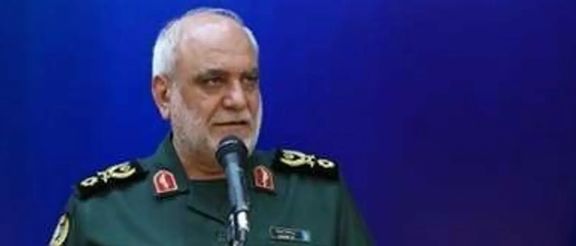
Iran claimed on Saturday that it had arrested all members of a sabotage team sent by Israel through the Iraqi border, following months of mysterious attacks.
A short announcement from the Intelligence Ministry said, “A network from the spy agency of the Zionist regime who were sent to the country for terrorist operations” were identified and arrested.
"This network's members were in contact with (Israel's) Mossad spy agency through a neighbouring country and entered Iran from (Iraq's) Kurdistan region with advanced equipment and strong explosives,"
Since March, Iran has at least three times made similar claims without presenting any evidence or information about what investigators discovered from the persons allegedly detained.
The last instance was on June 14, when the state broadcaster released a video claiming that criminals who were working for Mossad and planning kidnappings and assassinations were arrested. The report called these individuals “thugs and hooligans” and claimed they were involved in a wide range of criminal activities including human and weapons trafficking before being recruited by Israeli agents.
The intelligence ministry’s announcement came two days after Iran International in an exclusive report on July 21 said that Israel’s Mossad had captured a senior Revolutionary Guard official on Iranian soil and interrogated him about weapons shipments to Iran’s proxies in the region. After the interrogation the man was released.
Iran International had obtained video of the interrogation showing a man introducing himself as Yadollah Khedmati, deputy commander of the Revolutionary Guard (IRGC) Logistics, says he regrets his involvement in shipping weapons to Iran’s proxy groups in Syria, Iraq, Lebanon, and Yemen and urges other IRGC officials to avoid engagement in such activities.
Iranian government media on Saturday confirmed the report, saying that criminal elements had indeed detained the IRGC officer.
Since mid-2020 a series of high-profile mysterious attacks hit Iran’s nuclear and military installations around the country, widely believed to have been Israeli sabotage operations. In November 2020, Mohsen Fakhrizadeh, a key figure in Iran’s controversial nuclear program was assassinated in a complex operation on the outskirts of Tehran. His killing resembled more a Hollywood thriller, with a heavy, remotely controlled gun mounted in the back of a pickup truck that fired on Fakhrizadeh’s car on a highway.
In May, several IRGC officials were killed or died in suspicious circumstances, prompting Tehran to blame Israel, which has never officially taken credit for these operations.
In June, a major reshuffling of IRGC intelligence and counter-intelligence leadership took place, widely attributed to reported Israeli infiltration and the inability of Iran’s security bodies to deal with the situation.
The intelligence ministry’s announcement can be an attempt to show that Iran is not hapless in the face of repeated acts of sabotage. It can always detain criminals and showcase them as spies or saboteurs with no follow-up information later, as has been the case over the years.
The announcement did not say how many people were arrested and did not divulge their nationality. The network planned "acts of sabotage and unprecedented terrorist operations in sensitive locations", its statement said, without giving details.
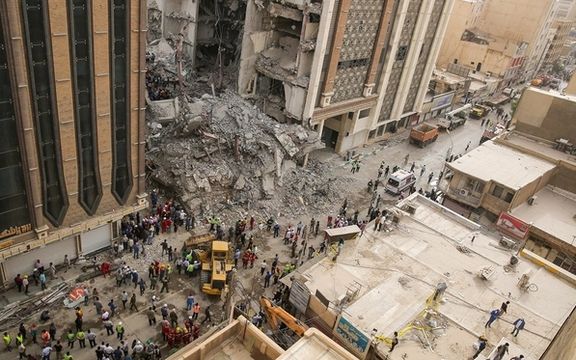
The brother of Hossein Abdolbaghi, whose poorly-constructed building recently collapsed in southern Iran and killed dozens of people, was shot dead by unknown assailants Saturday.
A video from a CCTV camera was released on media showing a car, which apparently was following Majid Abdolbaghi’s vehicle as it went into the parking lot, stopped in front of a building, as one man started shooting with a handgun from the front seat and another one got out of the car and started shooting from behind the car. According to reports Abdolbaghi succumbed to injuries after he was taken to hospital.
The Metropol twin towers collapsed on May 23 burying more than 80 people under the rubble, with about 42 bodies recovered. Soon after the collapse it became apparent that the owner and builder, Hossein Abdolbaghi, was a powerful and politically well-connected businessman who had disregarded regulations and building codes, backed by officials, who might have had their own financial interests.
Following the incident, Iranian media initially reported that Abdolbaghi, who was reportedly connected to Iran’s top security official Ali Shamkhani, had been arrested, but the government later announced that he had died in the collapse. The public did not believe the claim and many said that he escaped and corrupt officials, who had allowed him to violate building regulations, wanted him to disappear.
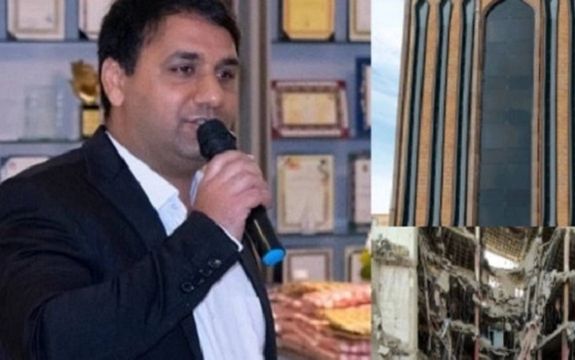
In June, reports came out that a physician who refused to cooperate in the alleged coverup had died mysteriously.
Earlier in the week, Iran’s prosecutor general issued an indictment against 20 people accused in the case of the Metropol incident.
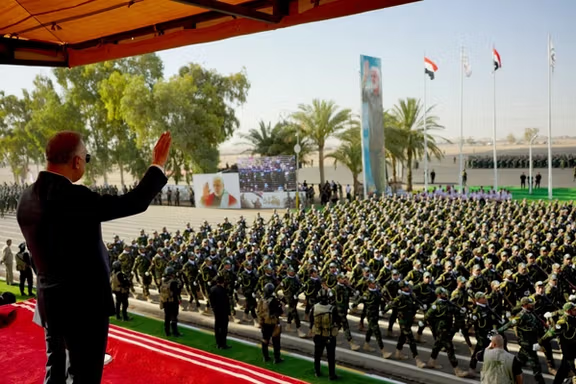
Iran-backed Shiite militia Hashd al-Shaabi, also known as Popular Mobilization Forces, held a military parade Saturday to mark the eighth anniversary of its formation.
The Saturday ceremony was held in al-Khalis, located about 15 kilometers (9 miles) northwest of the city of Baqubah in Diyala Province, and was attended by Prime Minister Mustafa al-Kadhimi, Chairman of the Popular Mobilization Forces Falih al-Fayyadh, Secretary General of the Badr Organization Hadi al-Amiri and a number of high-ranking military officials.
The militia also unveiled new weapons and military equipment, including al-Rasid (Monitor) and al-Hassib (Auditor) systems to control unmanned aerial vehicles and overhauled Russian T-52 tanks.
Al-Hashd al-Shaabi was established back in 2014, following a fatwa (a decree or ruling in Islamic sharia law) by influential Iraqi religious authority, Ali al-Sistani, to fight ISIS, which controlled four governorates and reached the borders of the capital Baghdad at the time. The Iraqi state-sponsored umbrella organization is composed of approximately 67 different armed factions, with around 128,000 fighters that are mostly Shia Muslim groups, but also include Sunni Muslim, Christian, and Yazidi groups.
Earlier in July, Moqtada al-Sadr, the most influential Shiite cleric in Iraq, who is against Iran’s presence in Iraq -- renewed his call to reorganize the Hashd al-Shaabi, which was led by former Iraqi militia commander Abu Mahdi al-Muhandis before he was killed alongside Qasem Soleimani in January 2020 by a US drone strike.
He said Hashd al-Shaabi should not be involved in sectarian conflicts, should withdraw from the Sunni-dominant areas, and should be kept away from foreign interventions – an indirect reference to Iran.
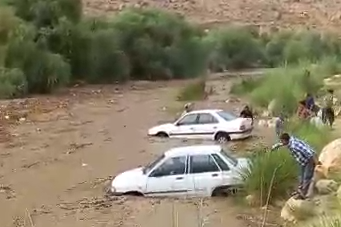
Heavy rains and subsequent flash floods in three cities of Iran’s southwestern Fars province left at least 21 dead on Friday while a search operation is ongoing for several missing people.
People in the cities of Darab, Neyriz, and Estahban and about 10 of their surrounding villages in the Fars province were affected by floods.
Hossein Darvishi, the CEO of Red Crescent Society of Fars Province, said 74 people were rescued from the flooded areas.
Estahban’s governor, Yousef Kargar, criticized the province’s meteorological organization for not issuing any warning about the precipitation.
In response to this criticism, the Meteorological Organization of Fars Province said it announced on Wednesday evening, July 20, the possibility of showers and thunderstorms for Friday.
In March 2018, a flash flood in the province led to the death of 44 people.
The director of Crisis Management of the province’s governorate, Khalil Abdollahi, said that at least 15 cars were also stranded in the flood.
Iran has been suffering from drought for at least a decade and this year officials have been warning of a further decrease in precipitation. However, Iran’s metrology department had warned about possibly heavy seasonal rainfall across the country. The dangers of flash floods have been exacerbated by the widespread construction of buildings and roads near riverbeds.
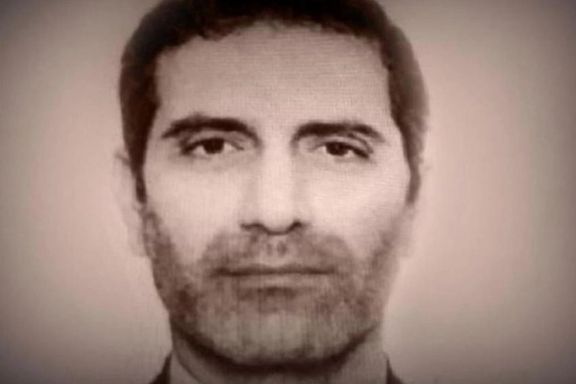
A court in Brussels has temporarily stopped Belgium from extraditing Assadollah Assadi, an Iranian diplomat sentenced to 20 years in jail on a terrorism conviction.
Darya Safai, an Iranian-born member of the Belgian parliament, released a document by the Brussels Court of Appeal on twitter on Friday evening showing the decision.
Following numerous complaints after the Belgian Parliament ratified a controversial prisoner swap treaty with Iran on July 20, the court ordered that Belgium be “provisionally prohibited from releasing Assadi […] from the Belgian prison where he is serving a sentence of 20 years […] and transferring him to any foreign state whatsoever.”
Assadi is imprisoned for “attempted murder and involvement in terrorism” for his role plotting to bomb a gathering of the exiled opposition group Mujahedin-e Khalq Organization (MEK) near Paris in 2018.
After being rejected by the court of first instance in Brussels on Thursday, the opponents of the prisoner-swap deal with Tehran -- including victims who had registered as civil parties to the trial -- won their appeal on Friday.
Georges-Henri Beauthier, a lawyer acting for the National Council of Resistance of Iran – an umbrella organization with MEK as its main member, said that according to the order, any proposed release of Assadi be subject to “cross-examination before a judge”.
The court noted that the rights of the plaintiffs “could be irreparably violated” if Assadi were handed over to the Iranian authorities, without allowing the decision to be legally challenged and confirmed by a judge through an adversarial procedure – a hearing where both parties are present or represented by a lawyer. The ban will apply until such a hearing is held, the court added.